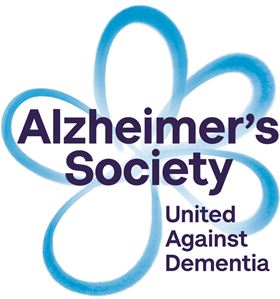
What Are The 7 Stages of Dementia?
Published: 07/09/2023
What Are the 7 Stages of Dementia?
Dementia is a progressive and devastating neurological condition that affects millions of individuals worldwide.
It gradually impairs cognitive abilities, memory, and daily functioning. Understanding the stages of dementia is crucial for patients, caregivers, and healthcare professionals as it helps in providing appropriate care and support tailored to the individual's specific needs.
While dementia progression can vary from person to person, the commonly recognized framework for tracking its stages is categorised into seven stages. In this article, we will explore these stages to provide a better understanding of the dementia journey.
What are the 7 stages of dementia?
Dementia is a progressive disease, so it makes sense that it follows a path of progression. By understanding the stages of impairment, family and loved ones can better prepare themselves for what lies ahead. It can also help in deciding when to implement interventions, such as hiring live-in care or moving the individual to a specialised care facility.
The earlier the diagnosis, the better prepared a family unit will be for the progression. This is why it’s important to know the early signs so you can seek a diagnosis and begin a treatment plan to help slow the progression of the disease. Here are the 7 stages of dementia you need to be aware of:
Stage 1: No Impairment
At this initial stage, individuals show no signs of dementia. Cognitive function and memory are intact, and they can perform daily tasks without difficulty.
Stage 2: Very Mild Cognitive Decline
This stage is characterised by subtle changes that may not be immediately noticeable. Individuals might experience occasional lapses in memory, such as forgetting names or misplacing items. These lapses are often attributed to normal ageing.
Stage 3: Mild Cognitive Decline
In the third stage, cognitive changes become more apparent. Individuals may have trouble finding the right words, remembering recent events or names, and have difficulty with complex tasks. Loved ones and close associates may begin to notice these changes.
Stage 4: Moderate Cognitive Decline (Early-Stage Dementia)
Stage 4 marks the beginning of early-stage dementia. Individuals here exhibit clear signs of cognitive impairment. They may struggle with tasks such as managing finances, planning, and organising. Memory gaps become more frequent, and they may become socially withdrawn.
Stage 5: Moderately Severe Cognitive Decline (Mid-Stage Dementia)
In stage 5, individuals require increasing assistance with daily activities. They may forget significant details about themselves, such as their own phone number or address. Behavioural changes may become more pronounced, with some individuals experiencing confusion, agitation, or wandering.
Stage 6: Severe Cognitive Decline (Mid-to-Late Stage Dementia)
This stage involves a severe decline in cognitive function. Individuals may lose the ability to recognize familiar faces, including their own reflection in the mirror. Communication becomes extremely challenging, with limited speech and an increased reliance on non-verbal cues. Assistance with basic activities of daily living (ADLs) is essential.
Stage 7: Very Severe Cognitive Decline (Late-Stage Dementia)
The final stage of dementia is marked by a profound loss of cognitive and physical function. Individuals often lose the ability to walk, sit up, or hold their heads up. They may experience difficulty swallowing and become susceptible to infections. Communication is minimal or non-existent. At this stage, individuals require round-the-clock care, often in a specialised facility.
Does dementia always follow this path?
It is essential to recognize that not all individuals with dementia will follow this exact progression. The rate at which dementia progresses can vary significantly, and some individuals may skip certain stages or experience them in a different order.
Once a dementia diagnosis has been secured, you should assume that the disease will progress quickly. Preparing for a fast advancement will allow family and loved ones to prepare for the worst parts of the disease.
It’s also best to prepare for the later stages early, as this can be pivotal in making sure you get help around the home. A live-in carer can help to keep the individual safe in their home, as they might start to wander and try to leave the house unsupervised as the disease progresses. By securing live-in care during the early stages of the disease, you can avoid negative outcomes as the condition worsens.
The importance of early detection and care
Early detection of dementia is crucial because it allows for better management of the condition and provides the opportunity to plan for the future. Support and care tailored to the specific stage of dementia can significantly improve the individual's quality of life and ease the burden on caregivers.
Conclusion
Understanding the seven stages of dementia is essential for individuals, families, and healthcare professionals. It allows for early detection, appropriate care planning, and a better understanding of the challenges individuals with dementia face as the condition progresses. While the journey through dementia can be challenging, knowledge and support can make a significant difference in providing the best possible care and quality of life for those affected.
These are only a few of the signs that may indicate your elderly loved one is in decline and needs additional care. While it's normal for seniors to experience some changes as they age, sudden or drastic changes can be a sign of something more serious.
If you're concerned about a loved one's health or wellbeing, we can arrange a home visit to determine if daily personal care or live-in care could give your loved one the support they need to continue living independently.
If you'd like to explore the possibility of introducing a carer or even a simple companionship visit to your home, get in touch with our friendly team today. We care for people in Camden, Hampstead, Golders Green and surrounding areas.
Our friendly and supportive team can be reached by calling on 0203 921 1111 or by emailing us at camden.hampstead@rightathome.co.uk

